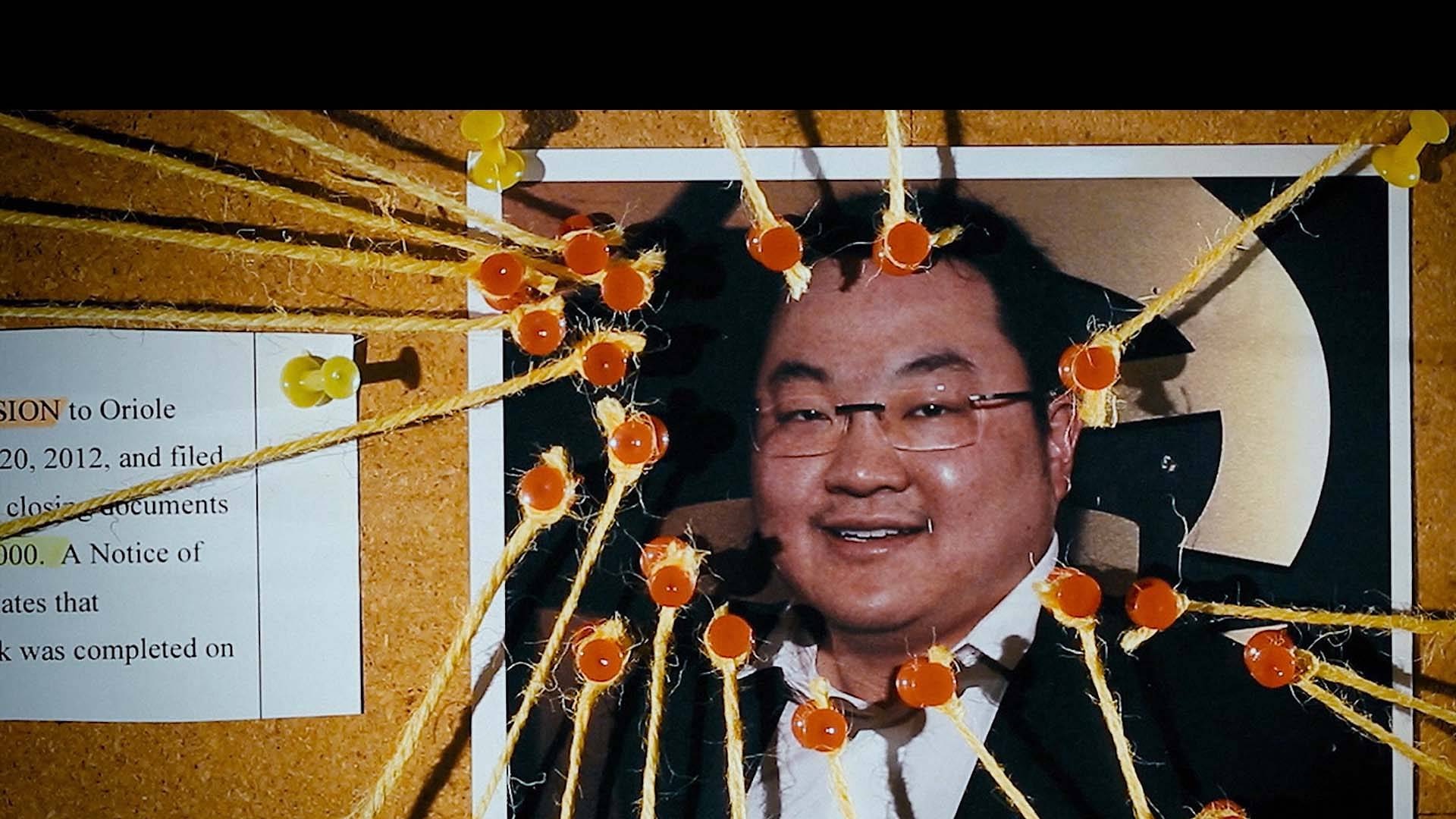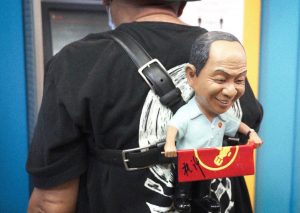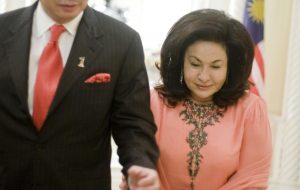In the 21st century, Hollywood is the opiate of the masses. We desperately hero-worship our favourite celebrities, by emulating the style and mannerisms of, say, Kim Kardashian and Snoop Dogg, as we aspire to the life of glamour and wealth that they live daily for our viewing pleasure.
Essentially, celebrities are our modern gods. They free us temporarily from the dull reality of mundane life by allowing us the fleeting experience of a more glamorous and exciting existence.
In The Kleptocrats, however, New York Times journalist Louise Story and directors Havana Marking and Sam Hobkinson raise important questions about our deification of the celebrity culture as they investigate Hollywood’s complicity in Malaysia’s 1MDB Corruption scandal.
With $4.5 billion allegedly stolen from the Malaysian people by disgraced Malaysian premier Najib Razak and his billionaire accomplice Jho Low, the US Department of Justice has condemned 1MDB as the “largest kleptocracy seizure in US history”. Interviewing investigative journalists who followed the trail of allegedly dirty money, the documentary exposes the dark side of Hollywood by highlighting how celebrities, from Robert de Niro to Leonardo DiCaprio, profited from this theft of public funds.
Much of the film centres around the investigations of Jho Low’s alleged shady dealings in the United States, as he brazenly engaged in shocking levels of conspicuous consumption to allegedly launder Najib’s ill-gotten gains.
The documentary does a good job of bringing to life the black letter figure of $4.5 billion, highlighting the billionaire’s party animal lifestyle as well as his ostentatious purchases of high-end real estate as well as expensive jewellery for Najib’s wife Rosmah Mansour.
Tony Pua, a Pakatan Harapan politician, is also shown calculating the number of teachers (3,333) that could have been paid for by one of Rosmah’s diamond necklaces, effectively contrasting the nihilistic greed of the conspirators with the struggles of ordinary Malaysians.
Yet, also notable in this documentary is the proximity of Hollywood celebrities to Jho Low, who built for himself a star-studded entourage of Hollywood A-listers including Ludacris, Britney Spears and Psy.
Throwing “the best and the most expensive party that Las Vegas had ever seen” for his 30th birthday—including an arcade and indoor Ferris Wheel—Hollywood’s biggest names were drawn into the orbit of the playboy billionaire by expensive gifts and parties. The sight of this alleged international white-collar criminal imbibing bottles of Cristal Champagne ($10,000/bottle) with Paris Hilton must surely be a discomforting sight for fans of the heiress style icon.
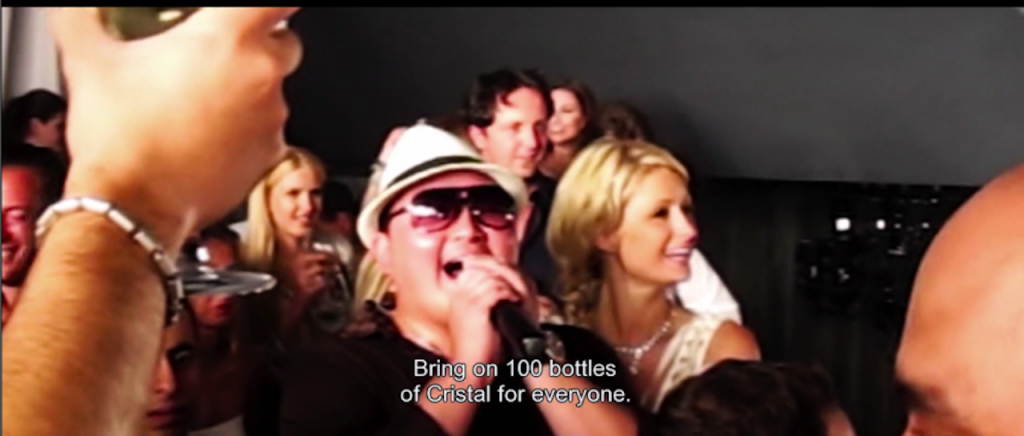
When the Hollywood Reporter’s Alex Ritman began ringing up movie insiders to learn more about the scandal, he found himself unable to publish the information he gleaned since nobody was willing to go on record.
“Hollywood is actually quite a small place,” he explained, “You don’t want your name out there as the person who talks about stuff.”
Even after the scandal broke, few celebrities condemned Jho Low or acknowledged their complicity in the affair. While some stars, such as supermodel Miranda Kerr, who was Leonardo DiCaprio’s ex-girlfriend and allegedly pursued by Jho Low, agreed to cooperate with the authorities and were never charged with wrongdoing, they have remained silent about their involvement in the 1MDB scandal. Robert de Niro—whose son bought a house from Najib—even hurled profanities at the longsuffering Ritman when asked about his relationship with the conspirators.
Kleptocrats is therefore not just a damning exposé of Najib and Jho Low’s allegedly transgressions, but also a call-out on the shallowness and corruption of Hollywood and celebrity culture.
When we worship our favourite celebrities, we suspend our disbelief and buy into the carefully-constructed personas these stars create on screen. So enamoured are we with these charismatic fronts that we pay scant attention to the real, complex individual lurking below the surface of these stars.
In truth, the insular nature of the US film industry and the degree of power and money concentrated within Hollywood make it an attractive place for corruption to take place.
For instance, Hollywood veterans Tom Cruise and John Travolta have been involved with the shady Church of Scientology for many years, while industry veterans like Harvey Weinstein got away with rampant sexual assault of Hollywood actresses. The recent involvement of A-list celebrities in a Malaysian corruption scandal is arguably not as surprising as it seems.
One might even argue that Jho Low’s motivation for participating in 1MDB in the first place might represent the billionaire’s personal desire to participate in the consumerist lifestyle that Hollywood so gratuitously promotes. It is telling that he chose to use his alleged dirty money to buy access into the exclusive Hollywood social scene, even ironically funding The Wolf of Wall Street as a middle finger to the people he allegedly cheated.
While it is perhaps Najib, his family, and Jho Low who are allegedly responsible for 1MDB, perhaps Hollywood’s glamourous culture of excess must also share some of the blame.
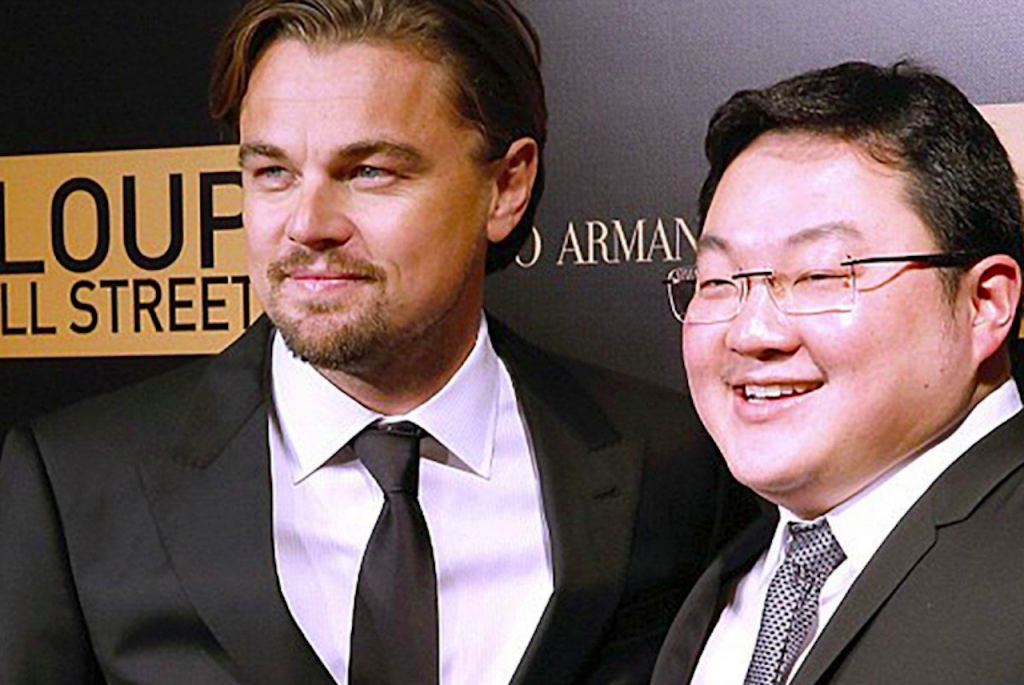
Besides being told to “get the fuck out of here” by Robert de Niro, the journalists covering 1MDB spent tedious hours combing through tangled financial leads and calling numerous individuals associated with the scandal to get the full story. One even found her luggage “ruffled through” by Malaysian immigration.
By speaking with the men and women who broke the story, one gets a sense of the extraordinary effort that the journalists put in to ensure that the world would know the full story of 1MDB.
The documentary also tells of the trials and tribulations of ordinary Malaysians who sought to protest against the corruption of Najib’s government.
Tony Pua, for instance, faced trumped up charges of engaging in “actions detrimental to parliamentary democracy” and consequently had his passport impounded. Cartoonist Zunar had his studio raided by police due to his satirical drawings, defiantly declaring that “you can ban my cartoons, but you cannot ban my mind”.
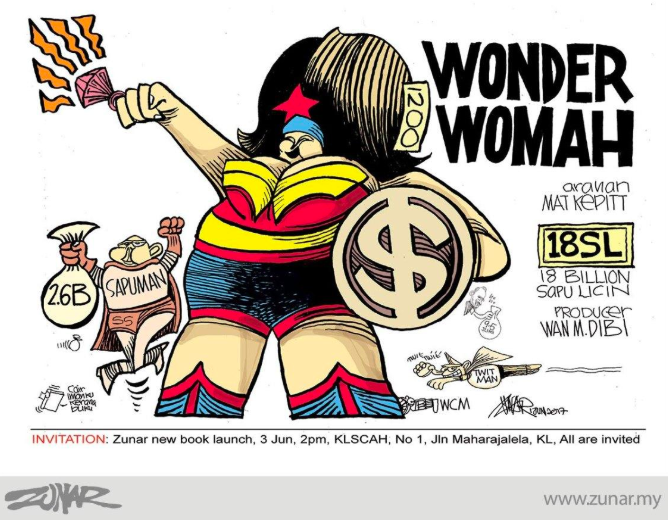
By highlighting their experiences, the documentary highlights that one does not have to be a prominent individual to make a positive difference in society, for it was the collective will of the Malaysian people that defeated Najib’s corrupt administration.
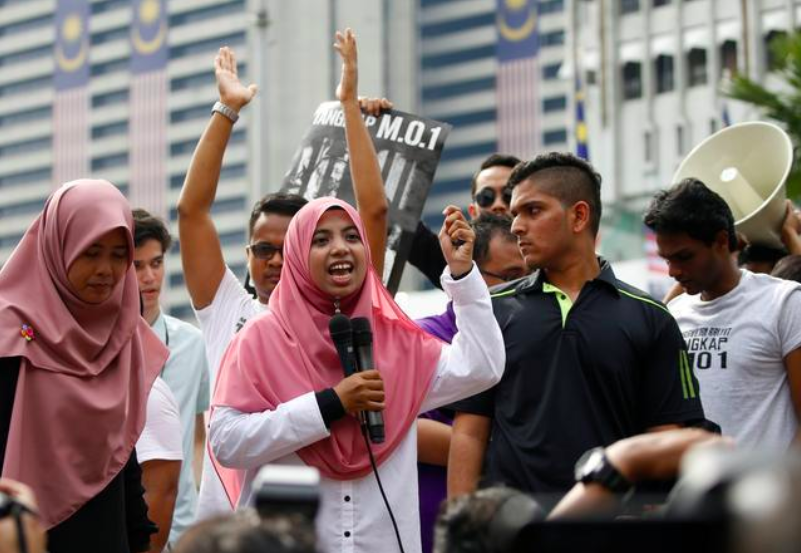
In fact, perhaps we should abandon hero-worship altogether. If ordinary people could expose a global financial scandal and vote out a kleptocratic government, then perhaps we ourselves can too be heroes and be the change we want to see.
Have something to say about this story? Write in: community@ricemedia.co.

